- Details
- Category: Senator Celina Villanueva News
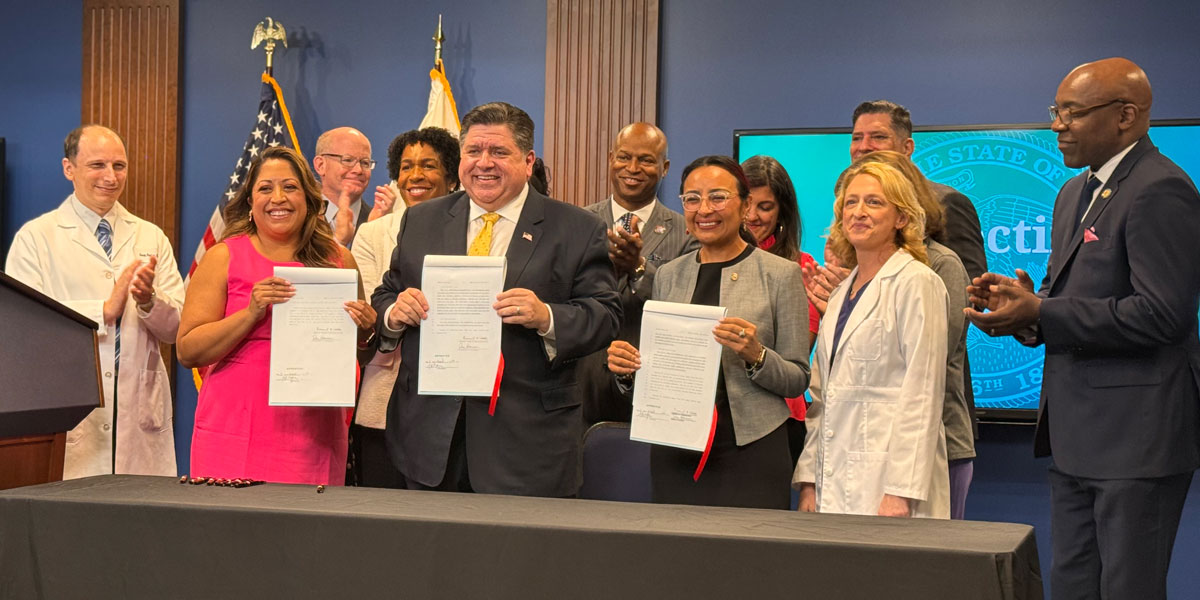 SPRINGFIELD — New laws from State Senator Celina Villanueva continue to support reproductive health care and ensure health care records are not being improperly disclosed.
SPRINGFIELD — New laws from State Senator Celina Villanueva continue to support reproductive health care and ensure health care records are not being improperly disclosed.
“As we navigate the war on reproductive rights, preventative laws like this are essential in counteracting restrictive and overarching laws of other states,” said Villanueva (D-Chicago). “As a safe haven state, it is our responsibility to reinforce state-level protections where federal protections have failed us.”
Last year Villanueva led House Bill 4664 – a law to shield out-of-state patients and in-state providers from legal action originating from other states regarding abortions performed here. To expand upon that measure and provide further protections, Villanueva championed House Bill 5239 this year.
Read more: Villanueva law safeguards and upholds reproductive rights
- Details
- Category: Senator Celina Villanueva News
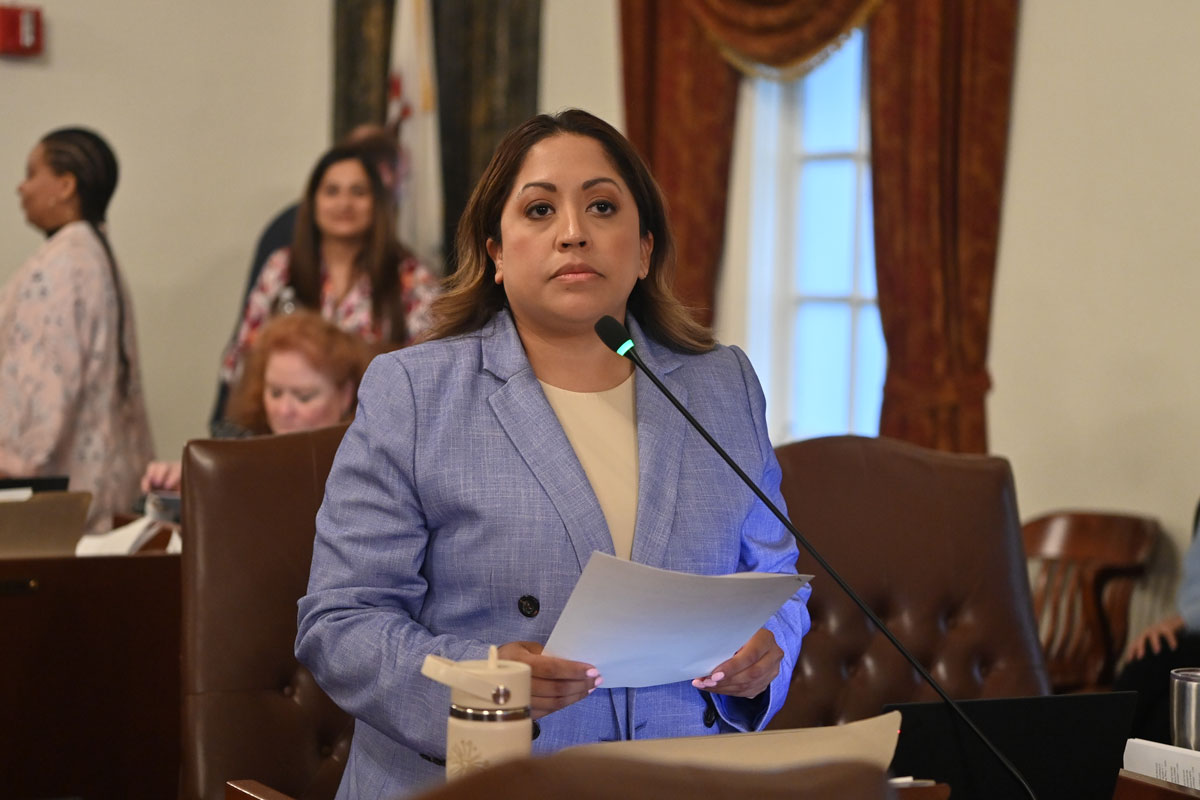 SPRINGFIELD – State Senator Celina Villanueva championed a newly signed proposal to enhance Scott’s Law by further protecting construction workers.
SPRINGFIELD – State Senator Celina Villanueva championed a newly signed proposal to enhance Scott’s Law by further protecting construction workers.
“Expanding Scott’s Law to include constructions zones is essential to ensuring the safety of workers and drivers alike,” said Villanueva (D–Chicago). “By prioritizing this preventative law we are instituting safeguard for the lives of everyone involved.”
Scott's Law requires drivers to change lanes when approaching stationary emergency vehicles, including highway maintenance vehicles displaying flashing lights, and any stationary vehicle with their hazard lights activated. The measure also states, if changing would be impossible or unsafe, drivers would be required to proceed with due caution, reduce the speed of the vehicle and leave a safe distance until safely passing the stationary vehicle.
Read more: Villanueva enhances Scott’s Law to include road construction sites
- Details
- Category: Senator Celina Villanueva News
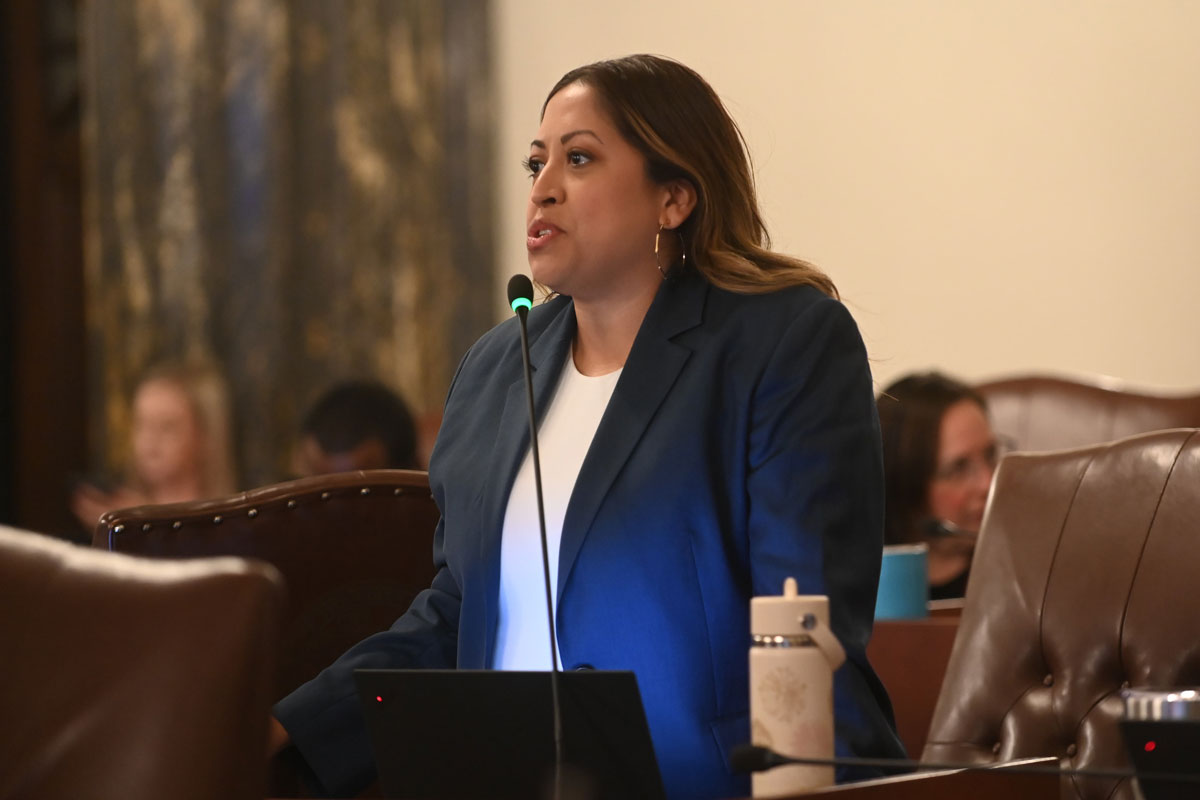 SPRINGFIELD – State Senator Celina Villanueva passed a measure to preserve lifesaving reproductive health care as anti-choice action threatens to infringe on people’s rights.
SPRINGFIELD – State Senator Celina Villanueva passed a measure to preserve lifesaving reproductive health care as anti-choice action threatens to infringe on people’s rights.
“It is imperative that Illinois continues to shield itself against these persistent anti-choice attacks,” said Villanueva (D – Chicago). “This pending Supreme Court ruling threatens access to vital life-saving care for women throughout Illinois and beyond by limiting medically necessary services.”
House Bill 581 would protect Illinois patients from another likely Supreme Court rollback of reproductive rights by ensuring Illinois hospitals must provide any medically necessary services—including abortion services—to stabilize a patient at risk of severe injury or death.
Read more: Villanueva’s bill to maintain lifesaving reproductive rights passes Senate
- Details
- Category: Senator Celina Villanueva News
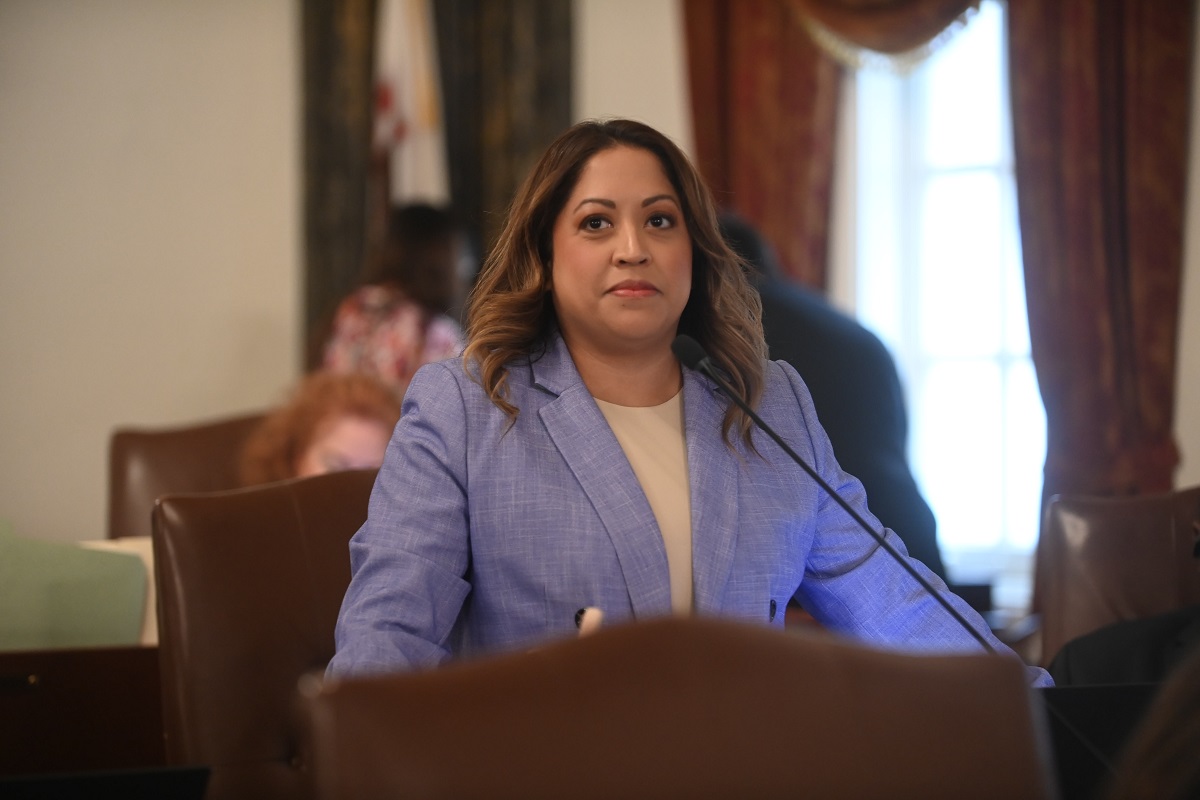 SPRINGFIELD — State Senator Celina Villanueva championed a measure through the Senate to ensure reproductive health care records are not being improperly disclosed.
SPRINGFIELD — State Senator Celina Villanueva championed a measure through the Senate to ensure reproductive health care records are not being improperly disclosed.
“As the war on reproductive rights continues throughout the nation, we must ensure that those who are seeking reproductive health care are protected in every way possible,” said Villanueva (D-Chicago). “As a safe haven state, we have a responsibility to protect individuals’ rights to care and ensure their health care records remain private.”
Last year Villanueva led House Bill 4664 – a law to shield out-of-state patients and in-state providers from legal action originating from other states regarding abortions performed here. To expand upon that measure and provide further protections, Villanueva led House Bill 5239 this year.
Read more: Villanueva measure to safeguard reproductive health care records passes Senate
- Details
- Category: Senator Celina Villanueva News
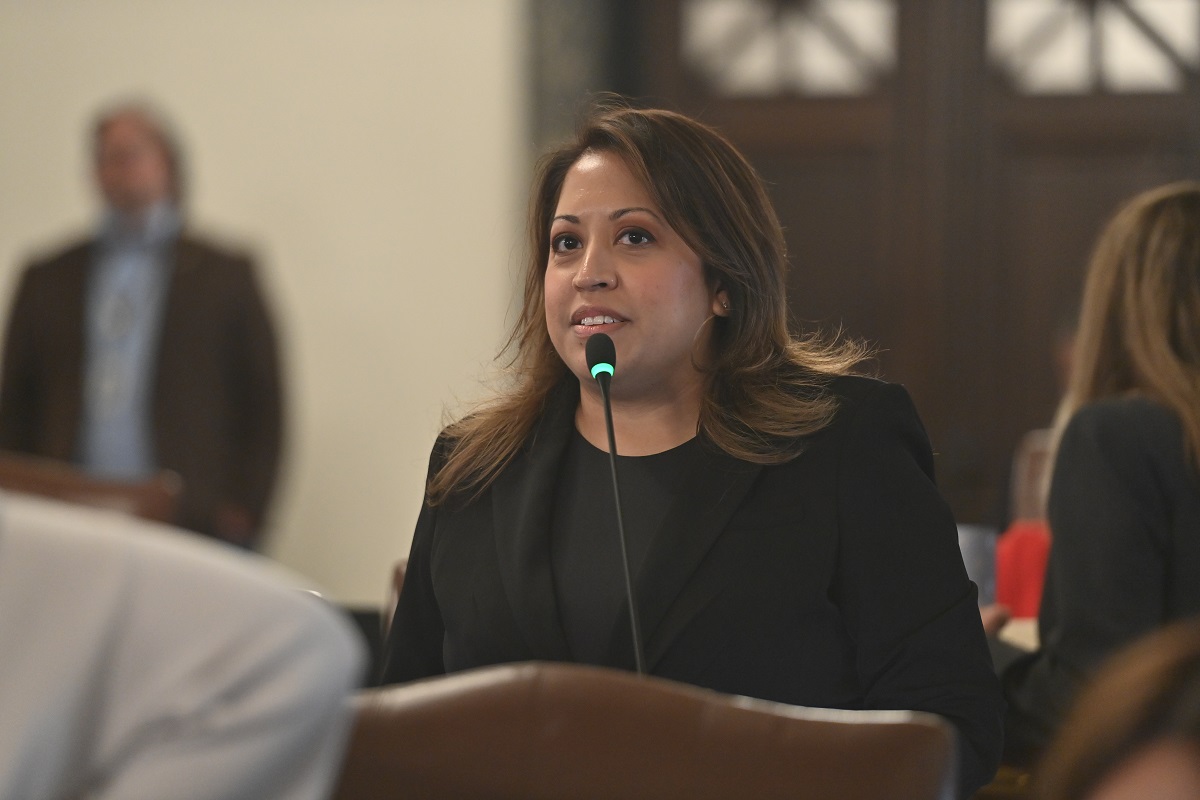 SPRINGFIELD — State Senator Celina Villanueva passed a measure through the Senate to ensure those who plead guilty to a possession charge receive a second chance in exchange for diversion into a probation program.
SPRINGFIELD — State Senator Celina Villanueva passed a measure through the Senate to ensure those who plead guilty to a possession charge receive a second chance in exchange for diversion into a probation program.
“Supportive measures like this allow first-time offenders of possession to reintegrate into society with the tools they need to succeed,” said Villanueva (D-Chicago). “Harsh penalties only serve to solidify a cycle of recidivism.”
Currently, a person who successfully completes a probation program will have their sentence or conviction vacated. This clean record applies while the person is enrolled in the program as well as for those who successfully complete the program.
Read more: Villanueva champions measure to give first-time offenders a second chance
- Details
- Category: Senator Celina Villanueva News
 SPRINGFIELD – State Senator Celina Villanueva championed a measure to protect construction workers by enhancing Scott’s Law.
SPRINGFIELD – State Senator Celina Villanueva championed a measure to protect construction workers by enhancing Scott’s Law.
“By establishing safety measures to further prevent accidents in construction zones, we will guarantee the safety of drivers, emergency responders, and those who work in construction and maintenance zones,” said Villanueva (D–Chicago). “Enhancing Scott’s Law is a necessary step to prioritizing protection of construction workers and drivers alike.”
Scott's Law requires drivers to change lanes when approaching stationary emergency vehicles, including highway maintenance vehicles displaying flashing lights, and any stationary vehicle with their hazard lights activated. The measure also states, if changing would be impossible or unsafe, drivers would be required to proceed with due caution, reduce the speed of the vehicle and leave a safe distance until safely passing the stationary vehicle.
Read more: Villanueva champions measure to enhance Scott’s Law
- Details
- Category: Senator Celina Villanueva News
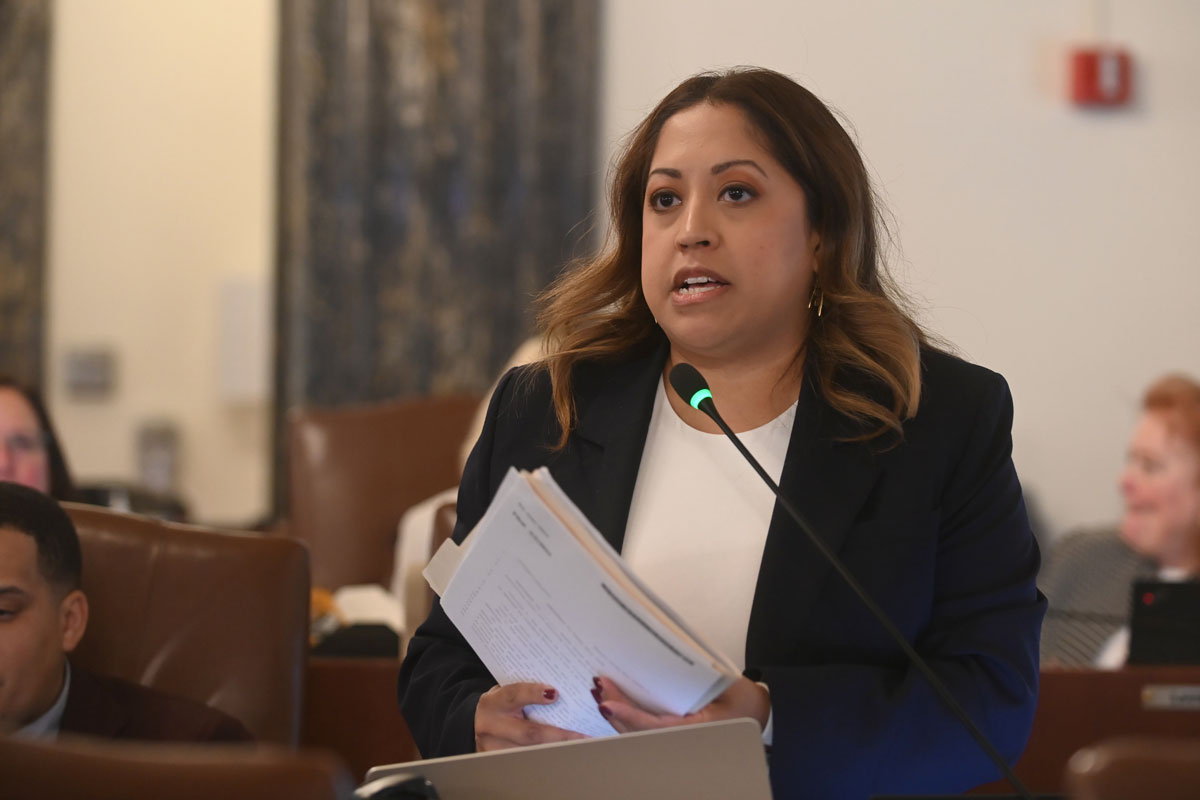 SPRINGFIELD – State Senator Celina Villanueva championed a measure to provide further protections to crime victims.
SPRINGFIELD – State Senator Celina Villanueva championed a measure to provide further protections to crime victims.
“There is no reason why crime survivors, who are brave enough to share DNA, should have to look over their shoulder wondering if their DNA they voluntarily provided will be used against them,” said Villanueva (D–Chicago). “This provision protects survivors and ensures they are able to seek justice without fear of systemic retaliation.”
House Bill 1168 would ensure that DNA evidence collected from a crime victim is not entered into a DNA database.
Read more: Villanueva leads measure to protect the DNA rights of crime victims
- Details
- Category: Senator Celina Villanueva News
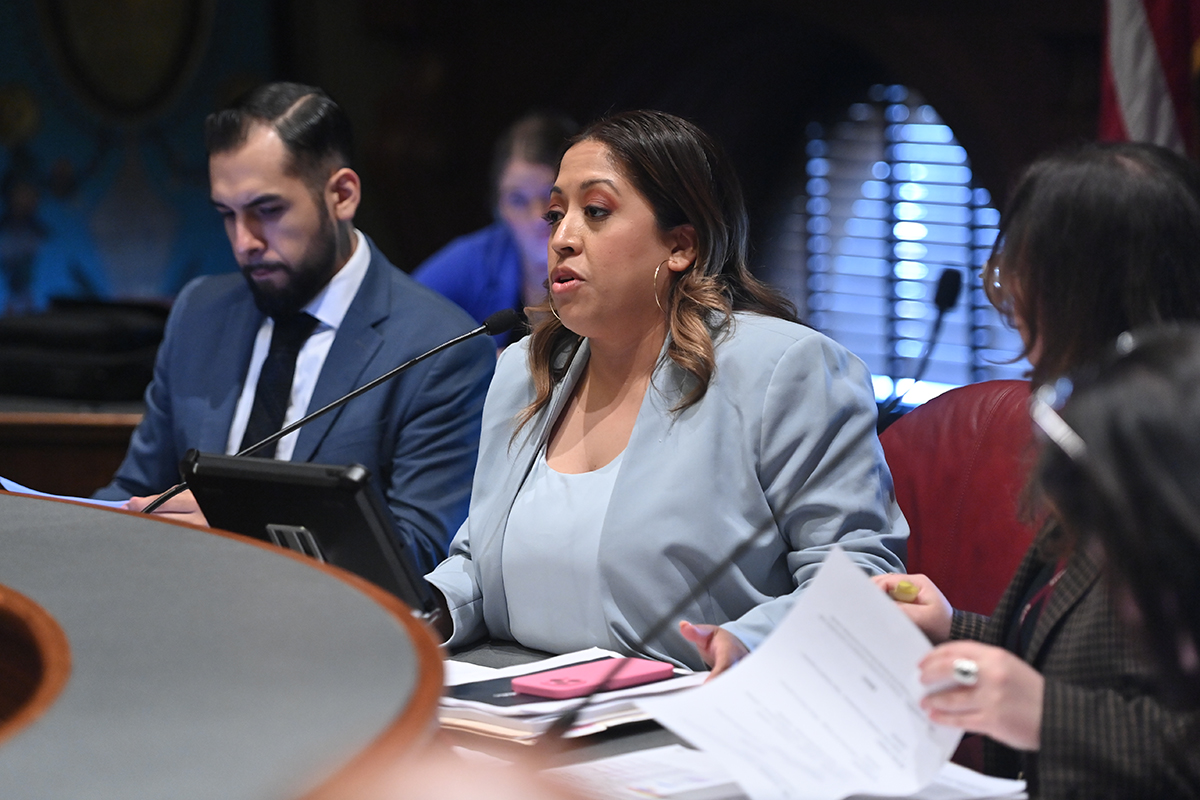
SPRINGFIELD —State Senator Celina Villanueva advanced a measure to help people who plead guilty to a possession charge a second chance in exchange for diversion into a probation program.
“First-time offenders of possession are typically young people who have made a misstep and by enrolling in a diversion program, they have shown their commitment to righting their wrongs,” said Villanueva (D-Chicago). “Clarifying that a recorded conviction without judgement is inadmissible allows folks to turn their lives around without a negative record lurking behind them.”
Currently, a person who successfully completes a probation program will have their sentence or conviction vacated. This clean record applies while the person is enrolled in the program as well as for those who successfully complete the program.
Read more: Villanueva advances measure to give first-time offenders a second chance
More Articles …
Page 3 of 16













 © 2026 Illinois Senate Democratic Caucus
© 2026 Illinois Senate Democratic Caucus